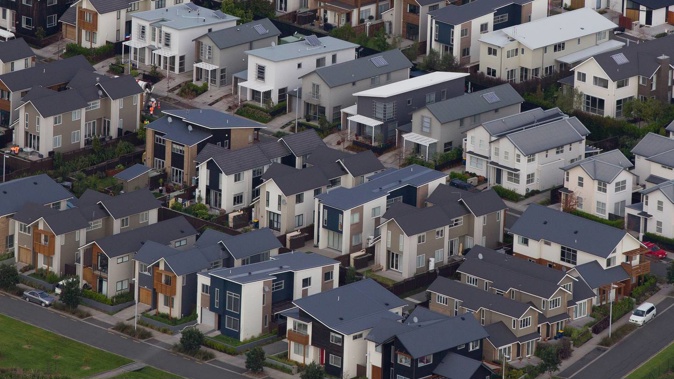
A combination of record house prices and the limited further potential for growth makes this year the worst for first-home buyers since 1957, new research by economics consultancy Infometrics has found.
A new report Housing update: A new lens on affordability, Infometrics compares the total payments made by homeowners over the lifetime of their mortgage against the value of the property when the loan has been repaid.
"The resulting net financial gain reveals which years were best and worst to be a first-home buyer since the late 1940s," said Infometrics Chief Forecaster, and report author, Gareth Kiernan.
"This approach takes better account of total housing affordability than simple comparisons of incomes to house prices or incomes to servicing costs in the first year of borrowing."
There were two key factors that contribute to 2022 being a bad time to buy a house, he said.
The first related to the average proportion of a household's income needed to service the loan throughout the mortgage.
"People taking on mortgages now are committing to having an average of 33 per cent of their income tied up in mortgage repayments for the next 25 years or longer," Kiernan said.
This figure is considerably higher than the 21 per cent that prevailed through the 2000s and 2010s.
At 49 per cent of income, initial debt servicing costs are similar to in 1987, but without the likelihood of the very strong income growth that quickly reduced the debt burden during the 1980s."
The second factor related to the expected increase in the value of the property over the life of the loan.
"The scope for house prices to rise rapidly from here, and provide today's purchasers with
significant capital gains, appears heavily limited, " Kiernan said.
"First-home buyers purchasing after a sustained period of strong house price growth risk buying at the peak of the market and enjoying less capital appreciation than buyers after a period of flat or falling house prices."
Judging when the market is at its peak did require considerable foresight, he acknowledged.
"But the reversal in house prices in the first half of 2022 suggests the boom that has persisted since the Global Financial Crisis has finally run out of momentum."
The research solved the long-running debate between baby boomers and millennials about who had it tougher when trying to purchase their first home, Kiernan said.
"Our analysis shows that even with mortgage rates below 5 per cent, the average home's million-dollar price means that today's first-home buyers face much less favourable financial outcomes than a buyer in 1987 did with interest rates of 20 per cent."
/cloudfront-ap-southeast-2.images.arcpublishing.com/nzme/6SWFRW2M55JHUGGRNZRFTMJKMQ.jpg)
House building boom. Photo / Tania Whyte
Young people are effectively signing themselves up for a lifetime of debt if they want to get into the housing market, with much less money left over for discretionary spending than previous generations enjoyed."
The results highlight several "good" and "bad" years throughout the last seven decades as the housing market's strength has varied.
"Some of the best years to have been a first-home buyer were 1949 and 1996 – when interest rates stayed relatively low throughout the life of the mortgage and there were substantial house price rises as well," Kiernan said.
In contrast, the worst years were 1955 and 1975, with the following 25 years including periods of substantial house price weakness.
Realistic house price projections for the next 25 years meant that buying in 2022 is almost as bad, financially, as 1955, he said.
For many young people, the only realistic path to home ownership was now with assistance from the "bank of mum and dad".
This was likely to reinforce the divide between families that are homeowners and families that are not, and it strikes at the heart of New Zealand's egalitarian foundations.
"People enjoy a range of benefits from owning their own home compared to renting," Kiernan said.
"Our analysis highlights the generational issues being caused by New Zealand's housing affordability crisis. There is a social responsibility for greater political action to ensure that homeownership does not continue to slip out of reach for more and more Kiwis."
Owen Vaughan, editor of NZME-owned property listing site OneRoof, said: "What should be a dream time for first-home buyers - more stock on the market, prices declining and vendors now willing to accept conditional offers - has been hampered by a triple whammy of events outside of their control: rising interest rates, a squeeze on credit as a result of LVRs and the CCCFA, and a post-Covid property boom that added another 40 per cent to the price of real estate in New Zealand."
"Those that have credit and the salary to service what can be a large mortgage will be in a good position, but that pool of buyers will likely shrink over the coming months," he said.
"For first home buyers, unfortunately, now's the perfect time for cashed-up buyers - investors."
Take your Radio, Podcasts and Music with you









